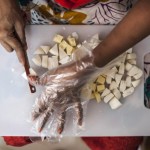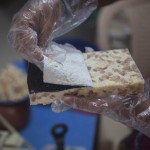‘Soap Lady’ who recycles used soaps into lifesavers for Mumbai slum dwellers
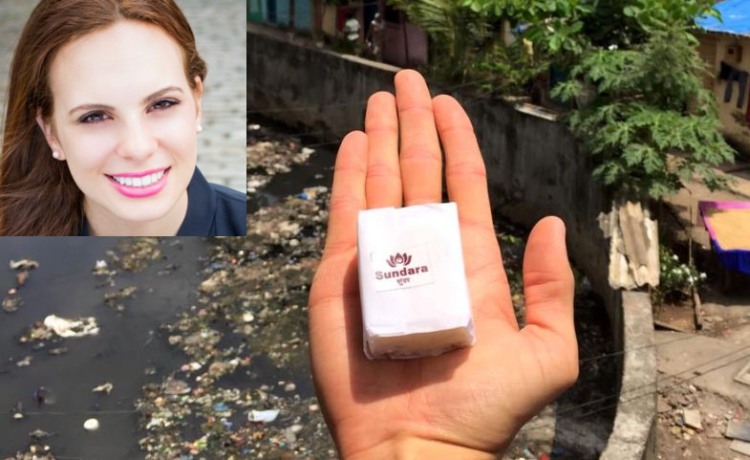
According to a WHO report, in India, about 70 million people do not have access to the most basic medicine – soap. Every year, about two million children die due to diseases that could be prevented simply by using soap. As a matter of fact, many children in slums don’t have any clue what soap is.
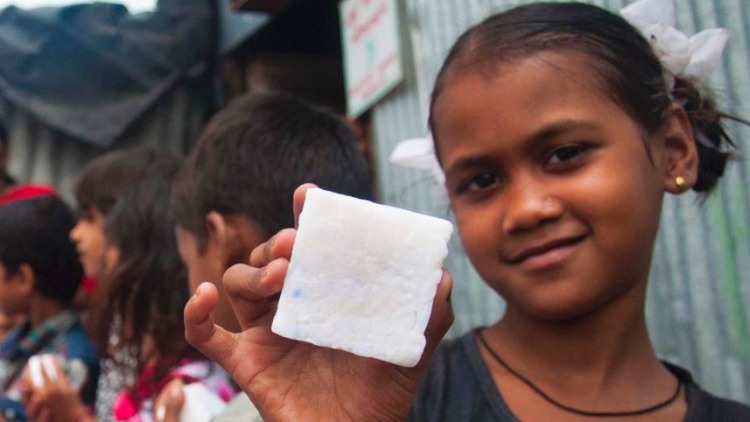
Erin Zaikis, a 25-year-old Jewish woman from New York, saw the movie ‘Slumdog Millionaire’ like millions of others. But for her, instead of just entertainment, it proved to be a life changing incident. She witnessed the poverty and misery of slum-dwellers living in Mumbai slums. She spent 2009 summer in India to take a closer look at life in Mumbai slums.
It was a life-changing experience. It’s a shock to all the senses. It taught me a lot and gave me perspective – me and so many Americans who live in New York and complain about things,
she says
After witnessing the suffering of most unprivileged community, literally living amid heaps of garbage and gutter drains, she dedicated herself for one of its kind non-profit organizations in the world – Sundra soap recycling.
Sundra started operating in India in 2014. The project not only provides employment to local women from slums, but also makes recycled soap bars available to unprivileged slum dwellers.
She has developed a method to easily recycle used soaps in new soap bars for re-use. The process does not require machinery of electricity, which makes it cheaper and easy to prepare. The recycled soaps are made available to people having no access to soap while living in most unhygienic conditions . She talked to Mumbai’s various hotels, which everyday dump huge amount of unused soap bars into landfills. Erin convinced them to save and supply them to her for recycling. She employed women from slums and taught them to clean, disinfect and repackage it in special process.
We work with luxury and boutique hotels in Mumbai to collect bar soap waste [usually thrown away by hotels. It is taken back to the slums, where we’ve trained underprivileged women to reconvert it back into sanitized bars, and then we distribute it free-of-cost to children and parents in need, while hosting free education workshops in the slums,
The local women from poor background receive payments for their labor. The recycled soaps are then distributed in 30 schools and community centres. Along with soap distribution, members of the non-profit organization also impart hygiene education and training.
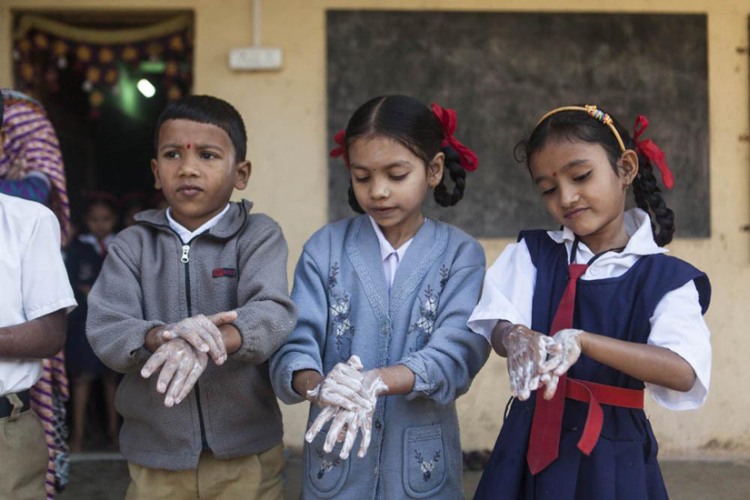
Talking about the turning point in her life, Erin says,
I was working in a Thai village on the border of Myanmar in 2013. I was volunteering at schools, and whenever I went to the bathroom I never saw a bar of soap. One day I got so fed up that I decided to take matters into my own hands. “Where is your soap? Don’t you wash your hands?” I asked a group of 11, 12, 13 year old children. “What’s soap?” they asked, dumbfounded. I couldn’t believe they were serious. I bought soap from a neighboring town and taught these children to wash their hands — but not before they clawed at the bars and smacked their foreheads with it, having no clue what to do with a bar of soap. That was my lightbulb moment. It broke my heart that these children had lived their whole lives with something I took for granted every single day of mine.
Calling this initiative as a win-win situation for all, she further adds,
What makes Sundara so unique is that everyone involved wins: our hygiene ambassadors (local slum women) are given fair wage jobs that lift them out of poverty. The slum residents are provided with regular deliveries of sustainable soap and hygiene education. We help the environment by diverting tons of landfill waste from overcrowded landfills in the process. Plus hotels benefit since it’s an easy CSR initiative to be involved in.
She is pursuing this joint venture with Gabriel Project Mumbai, another Jewish volunteer-based initiative that provides hunger relief, literacy support and health care to children living in Mumbai slums. Her project was initially funded by Linkedin and, presently, she receives half of total donations from Jewes. On some occasion, hotels associated with the initiative also grant funds.
